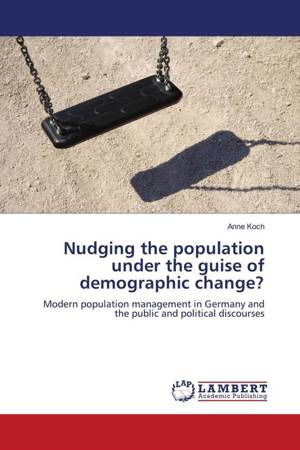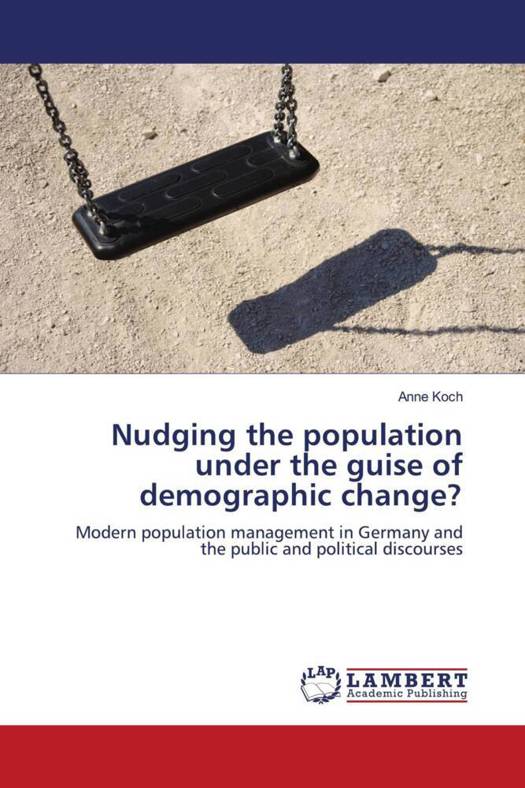
- Afhalen na 1 uur in een winkel met voorraad
- Gratis thuislevering in België vanaf € 30
- Ruim aanbod met 7 miljoen producten
- Afhalen na 1 uur in een winkel met voorraad
- Gratis thuislevering in België vanaf € 30
- Ruim aanbod met 7 miljoen producten
Zoeken
Nudging the population under the guise of demographic change?
Modern population management in Germany and the public and political discourses
Anne Koch
Paperback | Engels
€ 77,45
+ 154 punten
Omschrijving
Demographic change has become a major issue of concern in western societies in the past few years. Populations are declining, aging and diversifying. Germany is no exception in this regard but its peculiar history makes it a good case to look at the problems involved in dealing with demographic change and population decline. In order to do so, both political- and public discourses need to be taken into account and their connection identified. In short, the aim of this monograph is to explore the discursive practices involved in the public and political debate on demographic change in Germany, and how the expected consequences of this population change have affected policy and public discourse. A discourse analysis, including the political and public realm of the media was conducted, combined with an overview and analysis of past population policies- immigration policies and family policies in Germany.
Specificaties
Betrokkenen
- Auteur(s):
- Uitgeverij:
Inhoud
- Aantal bladzijden:
- 128
- Taal:
- Engels
Eigenschappen
- Productcode (EAN):
- 9783843382991
- Verschijningsdatum:
- 21/12/2010
- Uitvoering:
- Paperback
- Afmetingen:
- 150 mm x 220 mm
- Gewicht:
- 200 g

Alleen bij Standaard Boekhandel
+ 154 punten op je klantenkaart van Standaard Boekhandel
Beoordelingen
We publiceren alleen reviews die voldoen aan de voorwaarden voor reviews. Bekijk onze voorwaarden voor reviews.








